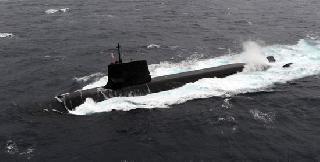
A Japanese submarine.
TOKYO (AFP): A huge submarine deal is on the table this week when Japan and Australia meet to shore up their military relationship, as the security architecture of the Asia-Pacific shifts to meet the challenge of a rising China.
Japanese Foreign Minister Fumio Kishida and Defence Minister Itsunori Onodera will play hosts in Tokyo on Wednesday to Julie Bishop and David Johnston, their respective opposite numbers, for the fifth round of so-called "2+2" talks.
High on the agenda will be discussions on the transfer of Japanese submarine technology to Australia, with Canberra needing to replace its fleet of stealth subs over the coming years at a reported cost of up to USD 37 billion.
This could see Tokyo's technology -- or even entire Japanese-built vessels -- used in the fleet, in a deal that would yoke the two nations together for several decades, binding their militaries with shared know-how.
The expected step comes as China's relentless rise alters the balance of power in a region long dominated by the United States, with Beijing ever-more willing to use its might to push territorial and maritime claims.
A rash of confrontations in the South China Sea has set off ripples of disquiet in the region, as has the festering stand-off with Japan over islands in the East China Sea.
The worries have encouraged a relationship-building drive across Asia, with Australia and Japan -- both key US allies -- a notable pairing.
Australian Prime Minister Tony Abbott and his Japanese counterpart Shinzo Abe signed a free trade pact and a security deal in April.
Following an Australian request, Tokyo will let Johnston see Japanese submarines during his stay, Onodera said.
The Japanese defence chief also stressed that various "frameworks" -- military pacts -- grouping Australia, Japan, South Korea, and the United States are vital in ensuring security in East Asia.
Increasingly, the outlines of a nascent coalition are becoming visible, says Takehiko Yamamoto, a security expert and emeritus professor at Waseda University.
"Naturally, Australia finds Japanese technology attractive," he said, adding that the nation's prowess in precision-manufacturing for the highly sophisticated submarine kit was enviable.
Tighter ties between the two US allies, both with vast coastlines, are a part of a greater "security complex", also involving New Zealand and India, that serves to create a counterbalance to China, said Yamamoto.
"It is a part of a long-term trend," he said.
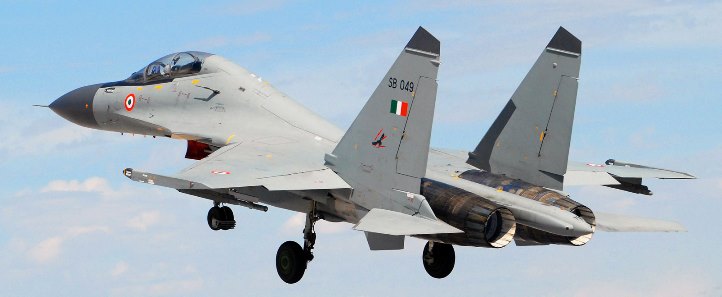 Next Article
Next Article
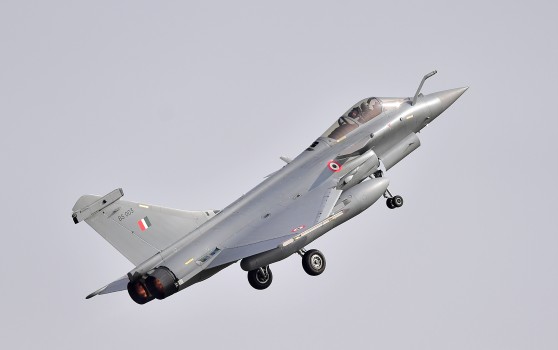
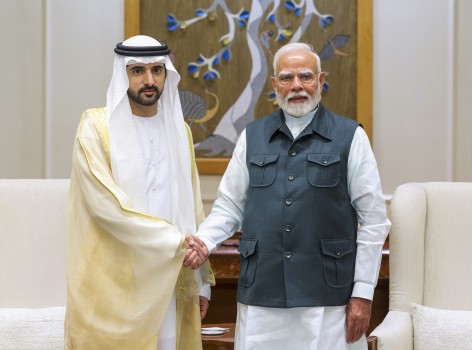
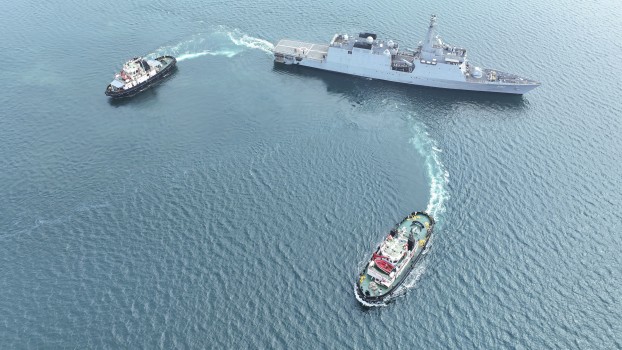










The Indian Air Force, in its flight trials evaluation report submitted before the Defence Ministry l..
view articleAn insight into the Medium Multi-Role Combat Aircraft competition...
view articleSky enthusiasts can now spot the International Space Station (ISS) commanded by Indian-American astr..
view article